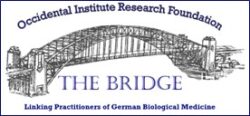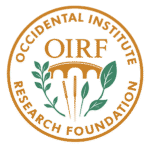Web Watch
Article submitted by Dr. Brian L. MacCoy, September 2008
Remedies as Placebos: A Double-Edged Sword:
“I do not believe and have never taught that homeopathy is the only way to heal people or the best way for everyone. But the usual argument that remedies are merely placebos cuts both ways. In the first place, it is plain wrong, since the method also has an impressive track record in the treatment of animals, newborn babies, and comatose patients, for whom the influence of suggestion is presumably negligible.
Second, if giving placebo or natural remedies or doing nothing at all can accomplish the same result as suppressive drugs or crippling surgery, then it is at least highly questionable which method works better, and who of sound mind would not prefer the cheaper and safer alternative, at least to begin with.
Third, it is certainly true that when homeopathic remedies succeed, our patients rightly feel that they have healed themselves, and may even wonder if they might not have done so on their own without any help at all. But to my mind this delicious quandary is hardly cause for complaint. I can think of no higher compliment to pay to a medicine than that its action cannot easily be distinguished from a gentle, spontaneous, long-lasting cure requiring no further treatment.
Indeed, I would argue, the irony lies wholly on the other side, that this optimal response is relegated to the placebo side of the equation, while drugs are considered effective only to the extent that they can overpower the basic physiology of as many patients for a long a time as possible. It is absurd if not contemptible to boast of standards that price brute force over elegance of fit, and subordinate healing the patient to manipulating virtually every identifiable biological function artificially and more or less at will.”
 An Informational Release for Members
An Informational Release for Members
From THE BRIDGE Newsletter of OIRF
Published September 2008
Found in the bi-monthly newsletter of the National Center for Homeopathy, June 2008
(Quotation taken from the Foreword of Richard Moskowitz, MD’s book, Resonance)


